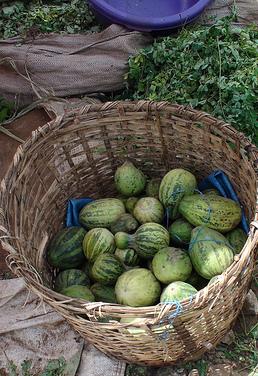
1. Mary Shawa, Secretary For Nutrition, HIV and AIDS , Malawi
“I would like more funding in high nutritive value foods for a nutritious diet, post harvest storage, value adding and livestock production.”
2. Wayne Stephen, Department of Integrated Science and Technology at James Madison University , USA
“Funding agriculture especially at the local level is both difficult and needed. The difficulty is that misdirected funding often does far more harm than good, and one location’s appropriate development is another area’s waste. For me the key is identifying the limiting factors in agriculture in an area, then aiming the funding at that limiting factor. For example, in Machakos and Kitui in Kenya the first key was/is water supply. Once that factor is addressed, soil conservation and tree planting follow, then you can move onto market development. In the flatter regions of northern Mozambique, around Nampula, the issue was soil fertility – increasing organic matter in the soil, so I would target development money there on that problem. No two areas will be exactly alike, so one has to target the area based on a solid local understanding of the limiting factors that local people identify themselves.”
3. Bell Okello, International Center for Research on Women (ICRW), Kenya says:
“I would like to start by recognizing the need to invest in women farmers – to improve their access to essential factors of production, to improve their access to critical farm inputs, to enhance their role and visibility in the value chain including farmers organizations, to enhance their presence in the output markets so that they can get incomes for their produce, information for high quality value production, to enable women participate in high end horticultural production -processing-marketing. In doing these investments, there is the need to ensure men, who are important members of their households understand and institutionalize the different roles both play in household food security and livelihoods – that men are not disenfranchised to the point of fighting instead of embracing contributions by women, that men feel encouraged and secure in working with and not fighting the women farmers, that men can give some of the space they so dominate to the women farmers and agro-business women.
On the other hand, it is important that the other factors critical for the success of agriculture are in place! Infrastructure, affordable quality inputs, access to credit, functioning markets, access to agricultural technology are critical (here, research and dissemination of these technologies to farmers is critical). For me, it is a package, not one single thing. Any investment in a single sector will not be a solution. More important, and given the diversity and complexity of constraints that farmers face, especially women farmers, we may have to start from analyzing the root causes of the said constraints, then working up the problem tree in order to select the priority areas that will give the greatest returns in the short, medium and long term.”
See Part I to hear from Dave Andrews (USA), Dave Johnstone (Cameroon), and Pierre Castagnoli (Italy).
See Part II to hear from Paul Sinandja (Togo), Dov Pasternak (Niger), and Pascal Pulvery (France).
See Part III to hear from Christine McCulloch (UK), Hans R Herren (VA), and Amadou Niang (Mali).
See Part IV to hear from Michel Koos (Netherlands), Don Seville (USA), and Ron Gretlarson.
See Part V to hear from Shahul Salim, Roger Leakey (Kenya), and Monty P Jones (Ghana).
See Part VI to hear from Calestous Juma (USA), Ray Anderson (USA), and Rob Munro (Zambia).
See Part VII to hear from Tom Philpott (USA), Grace Mwaura, and Thangavelu Vasantha Kumaran.
See Part VIII to hear from Peter Mietzner (Namibia), Madyo Couto (Mozambique), and Norman Thomas Uphoff (USA)
See Part IX to hear from Tilahun Amede (Ethiopia), Shree kumar Maharjan (Nepal), and Ashwani Vasishth (USA)
What is your answer? Email me at Dnierenberg@Worldwatch.org or tweet your response to @WorldWatchAg

Danielle Nierenberg, an expert on livestock and sustainability, currently serves as Project Director of State of World 2011 for the Worldwatch Institute, a Washington, DC-based environmental think tank. Her knowledge of factory farming and its global spread and sustainable agriculture has been cited widely in the New York Times Magazine, the International Herald Tribune, the Washington Post, and
other publications.
Danielle worked for two years as a Peace Corps volunteer in the Dominican Republic. She is currently traveling across Africa looking at innovations that are working to alleviate hunger and poverty and blogging everyday at Worldwatch Institute’s Nourishing the Planet. She has a regular column with the Mail & Guardian, the Kansas City Star, and the Huffington Post and her writing was been featured in newspapers across Africa including the Cape Town Argus, the Zambia Daily Mail, Coast Week (Kenya), and other African publications. She holds an M.S. in agriculture, food, and environment from Tufts University and a B.A. in environmental policy from Monmouth College.








